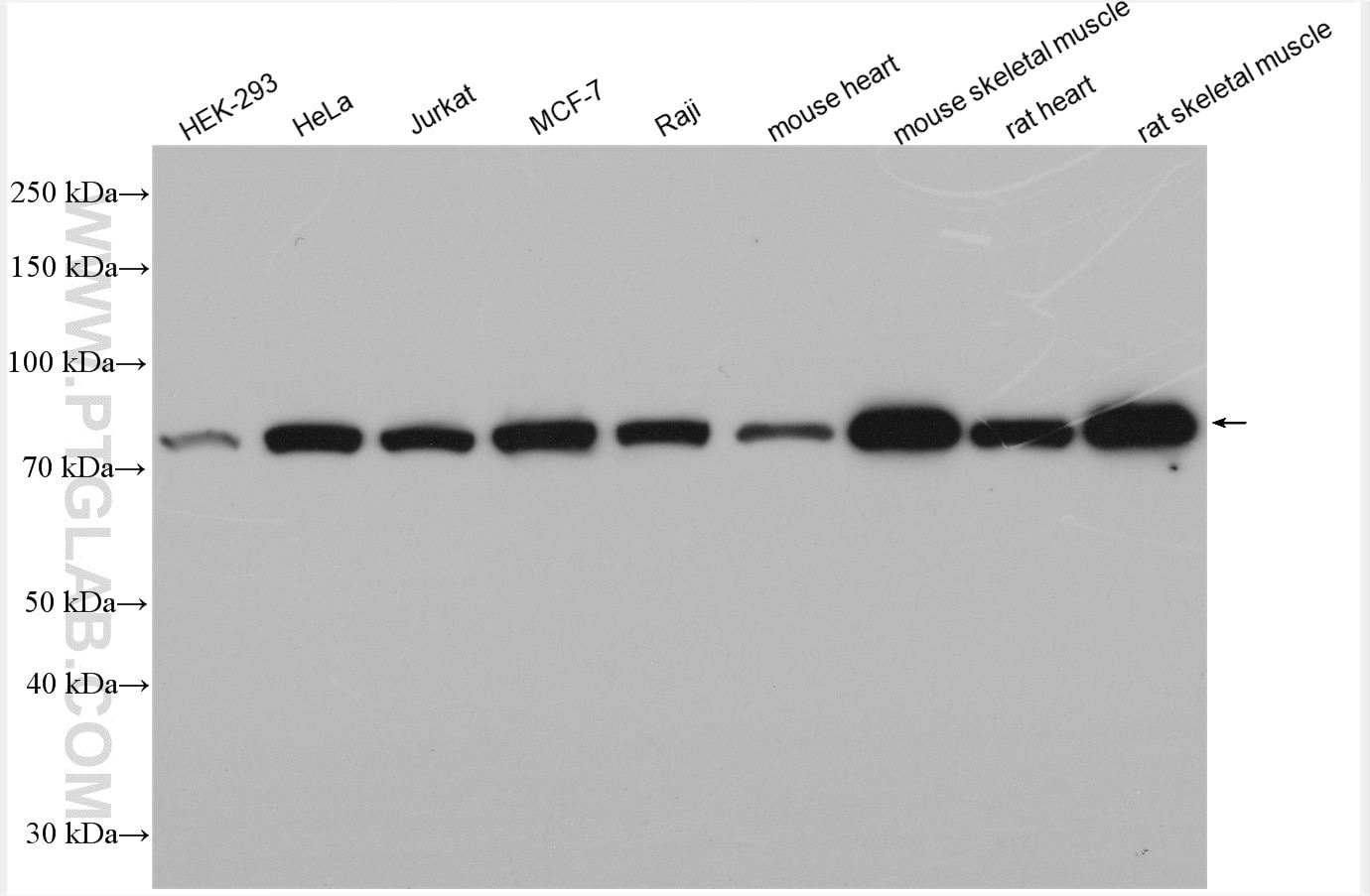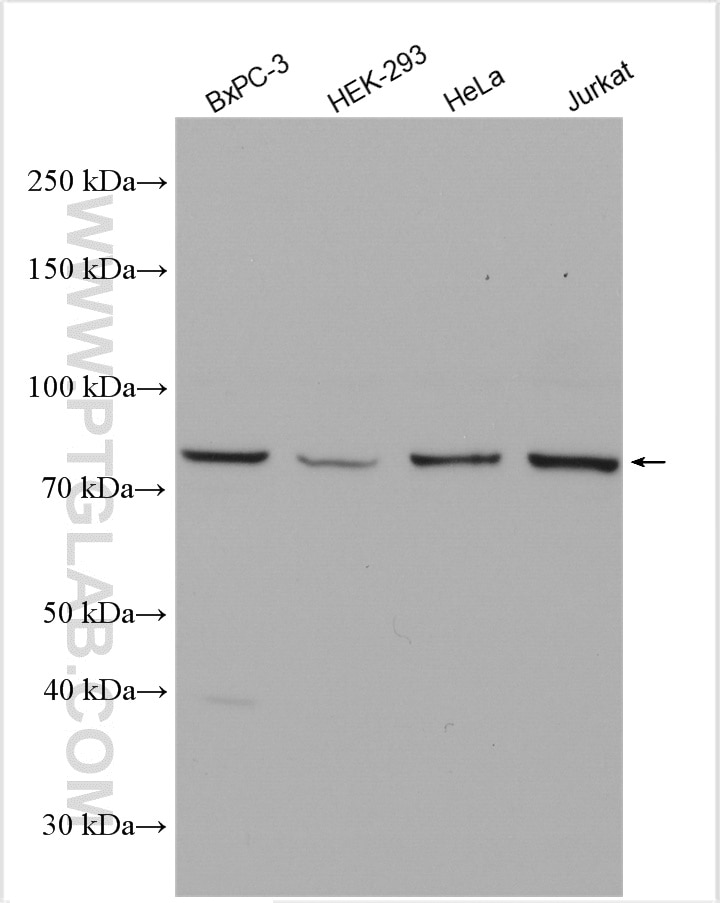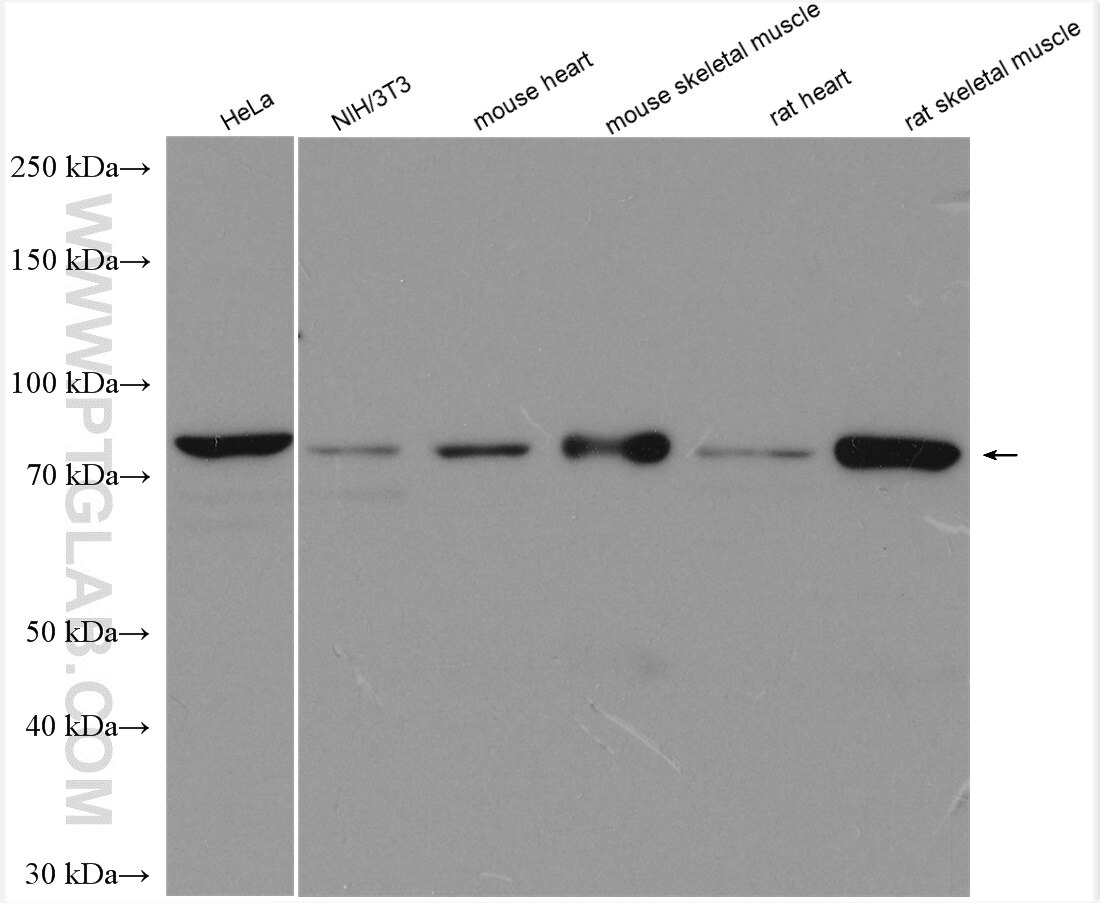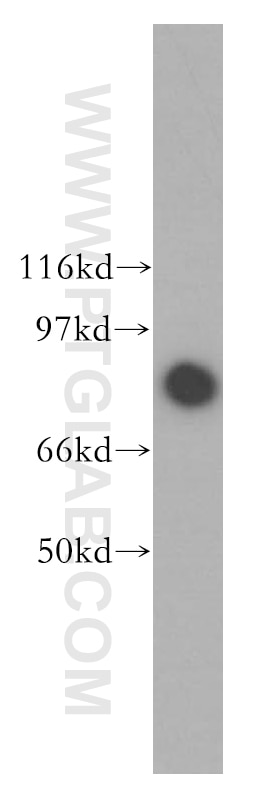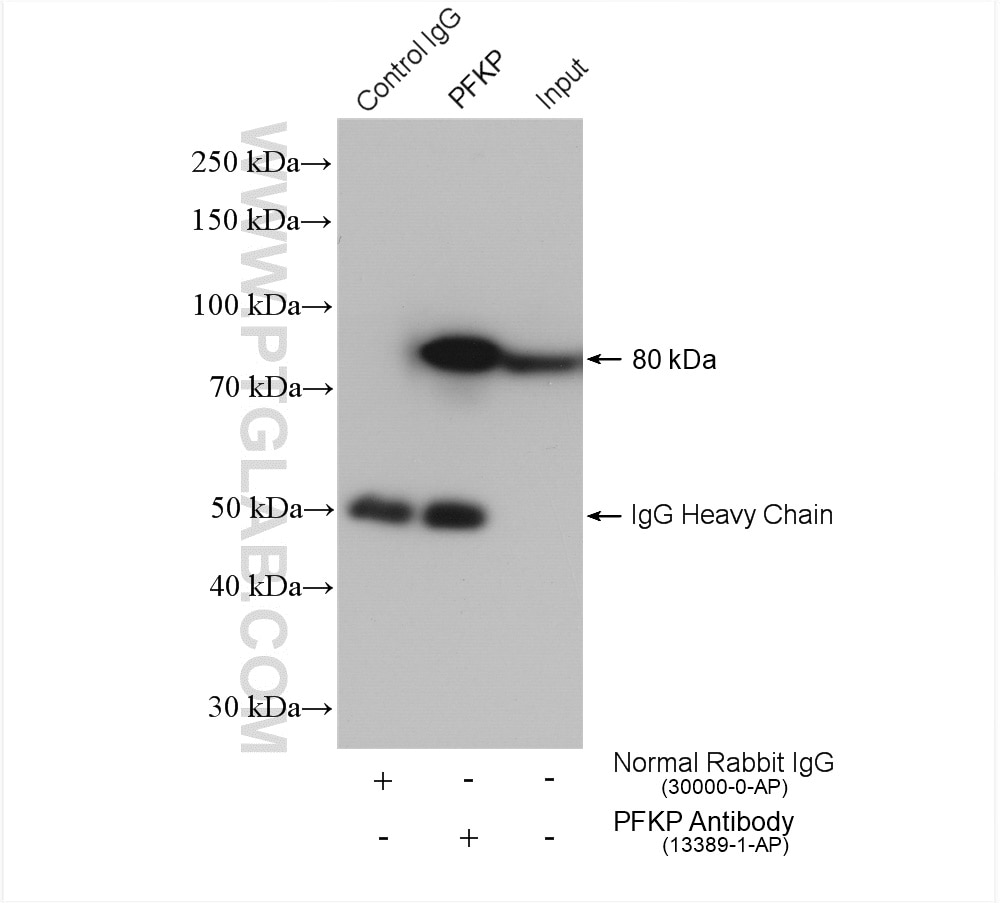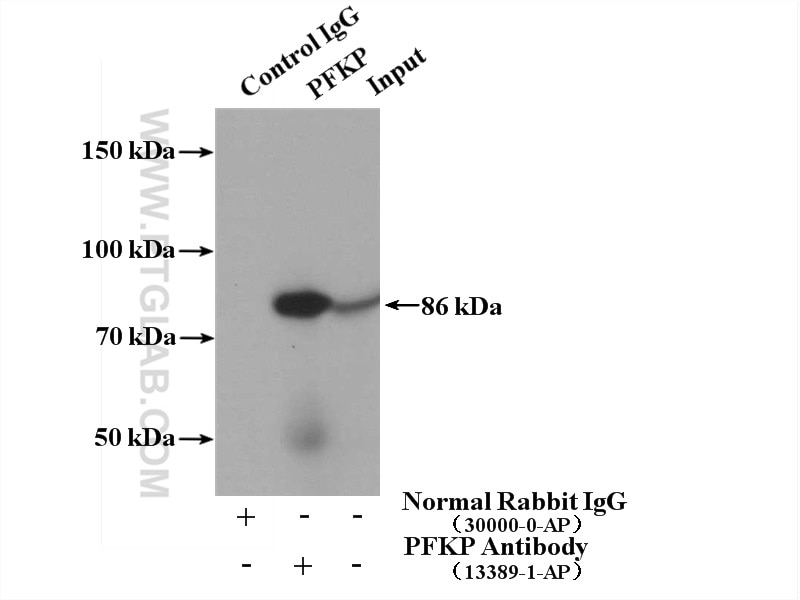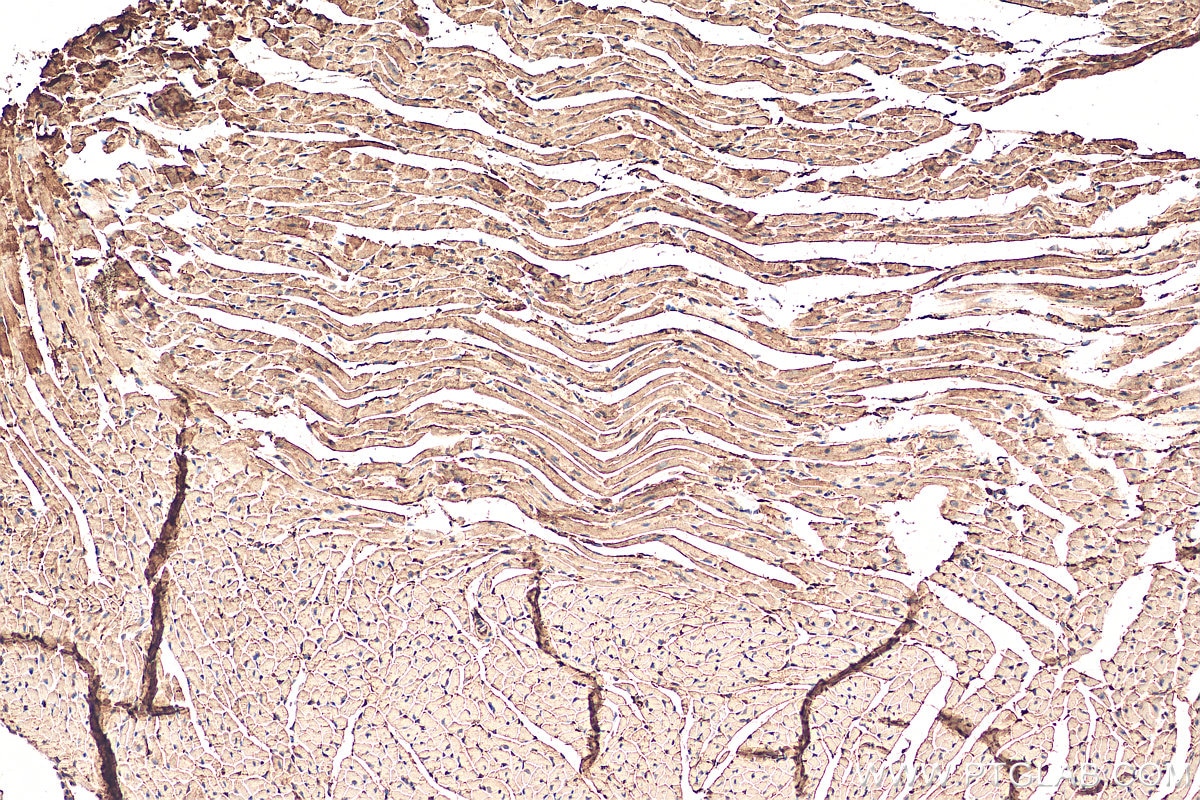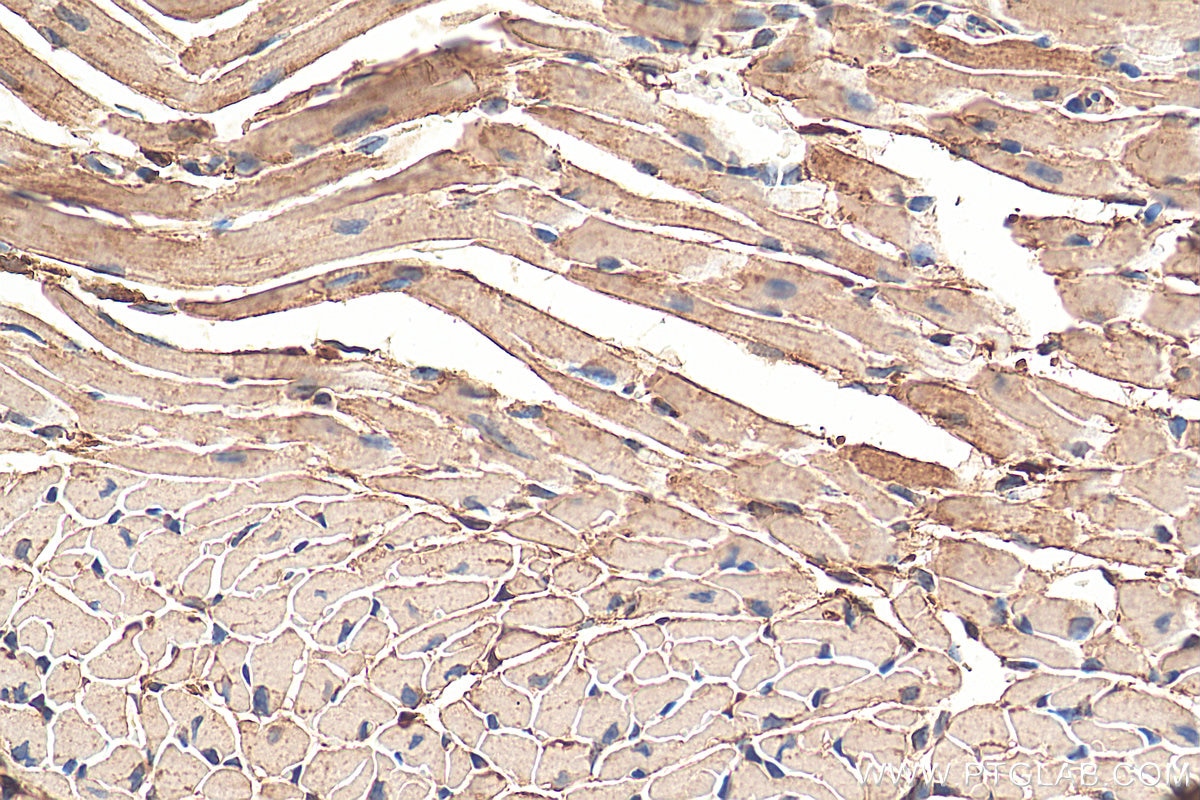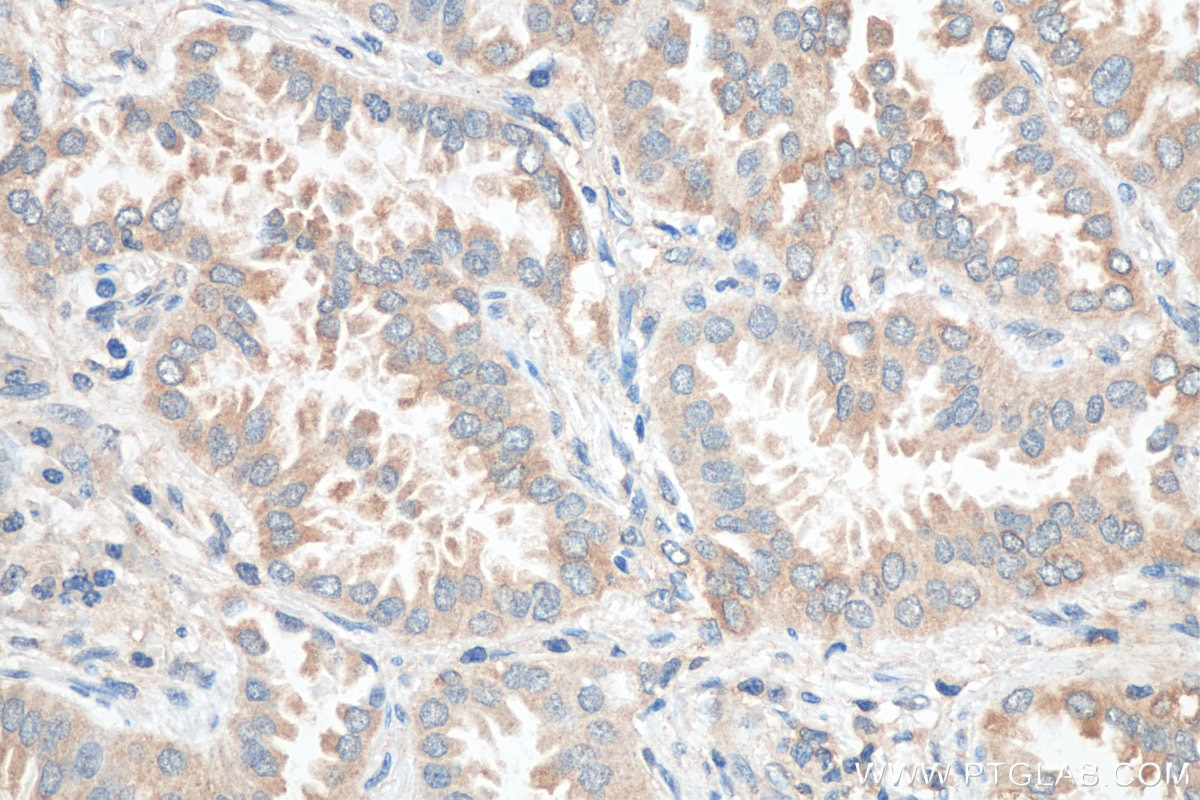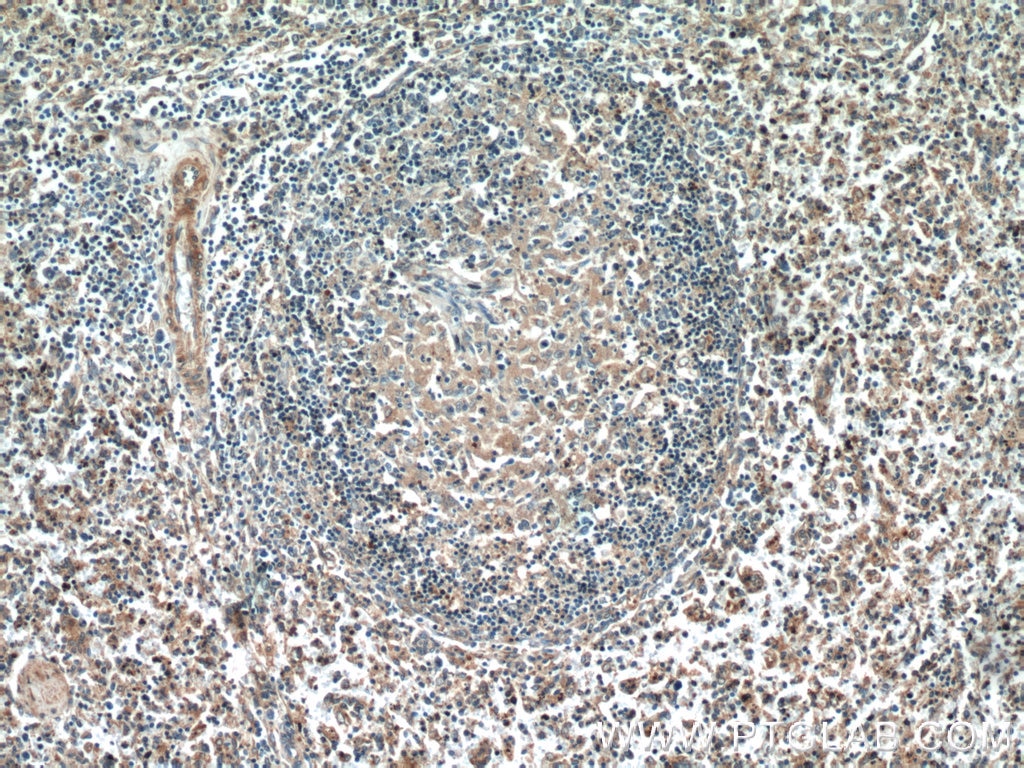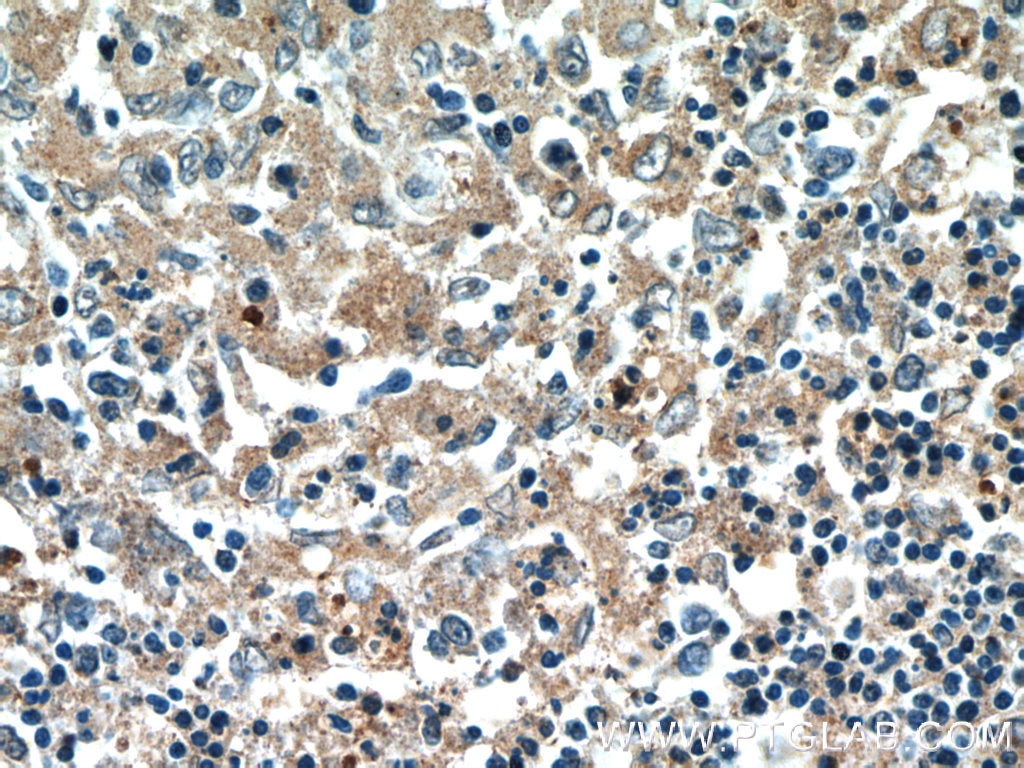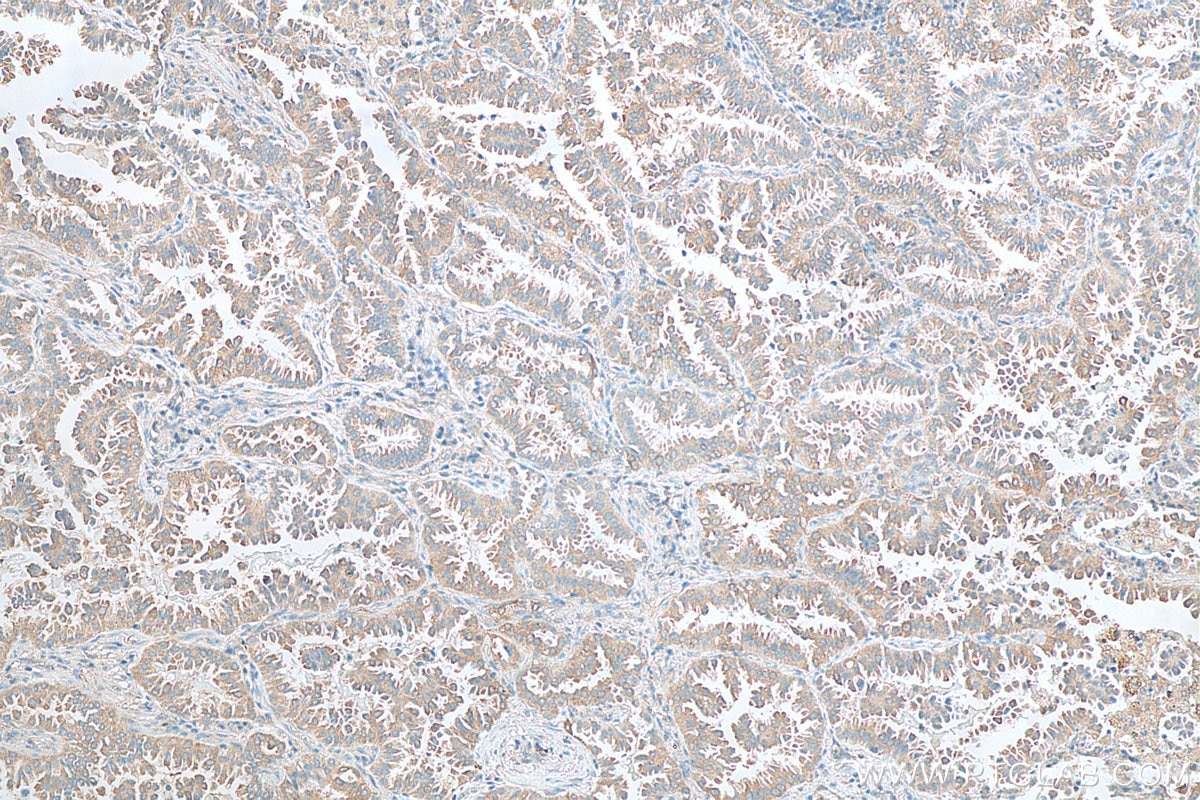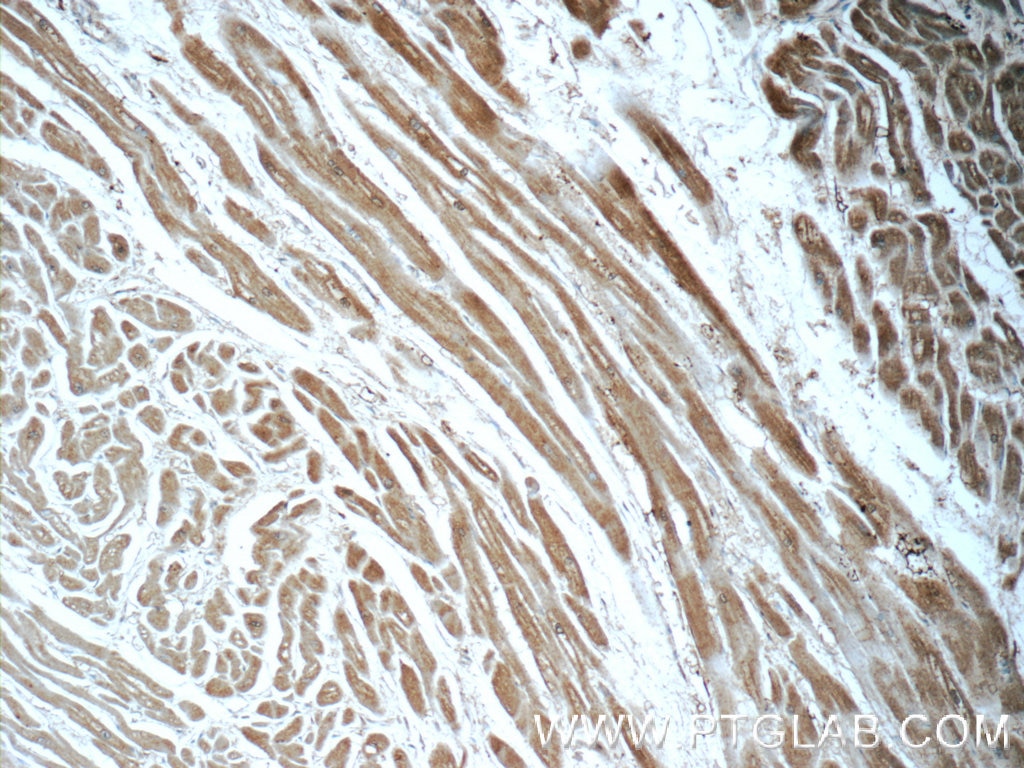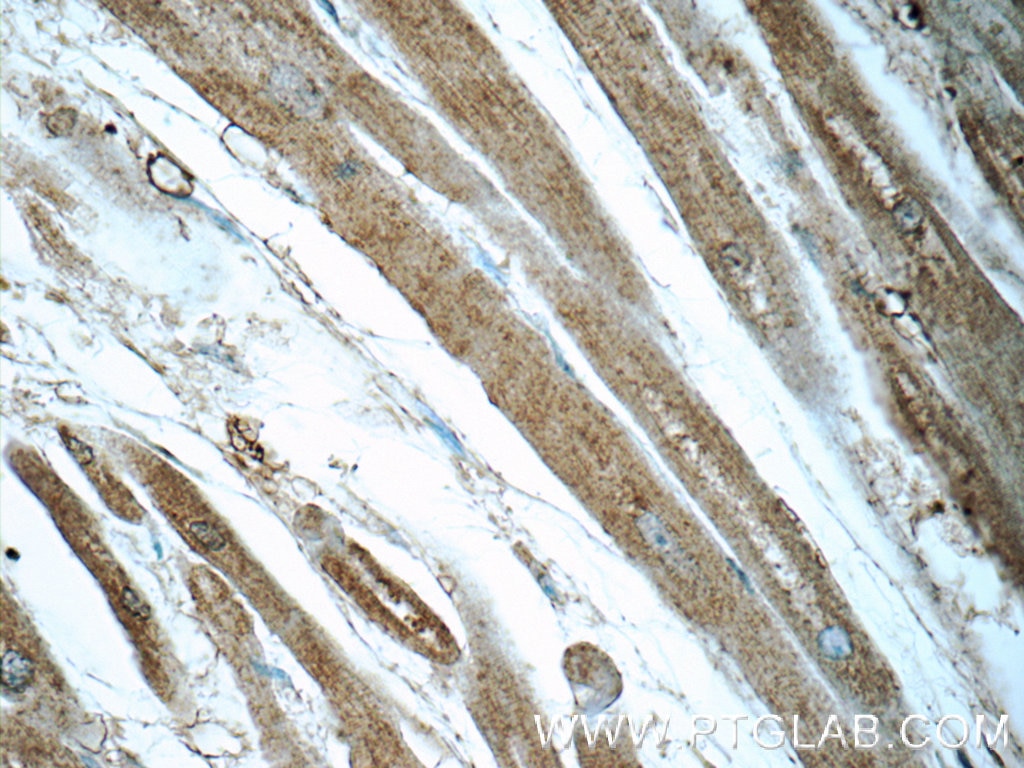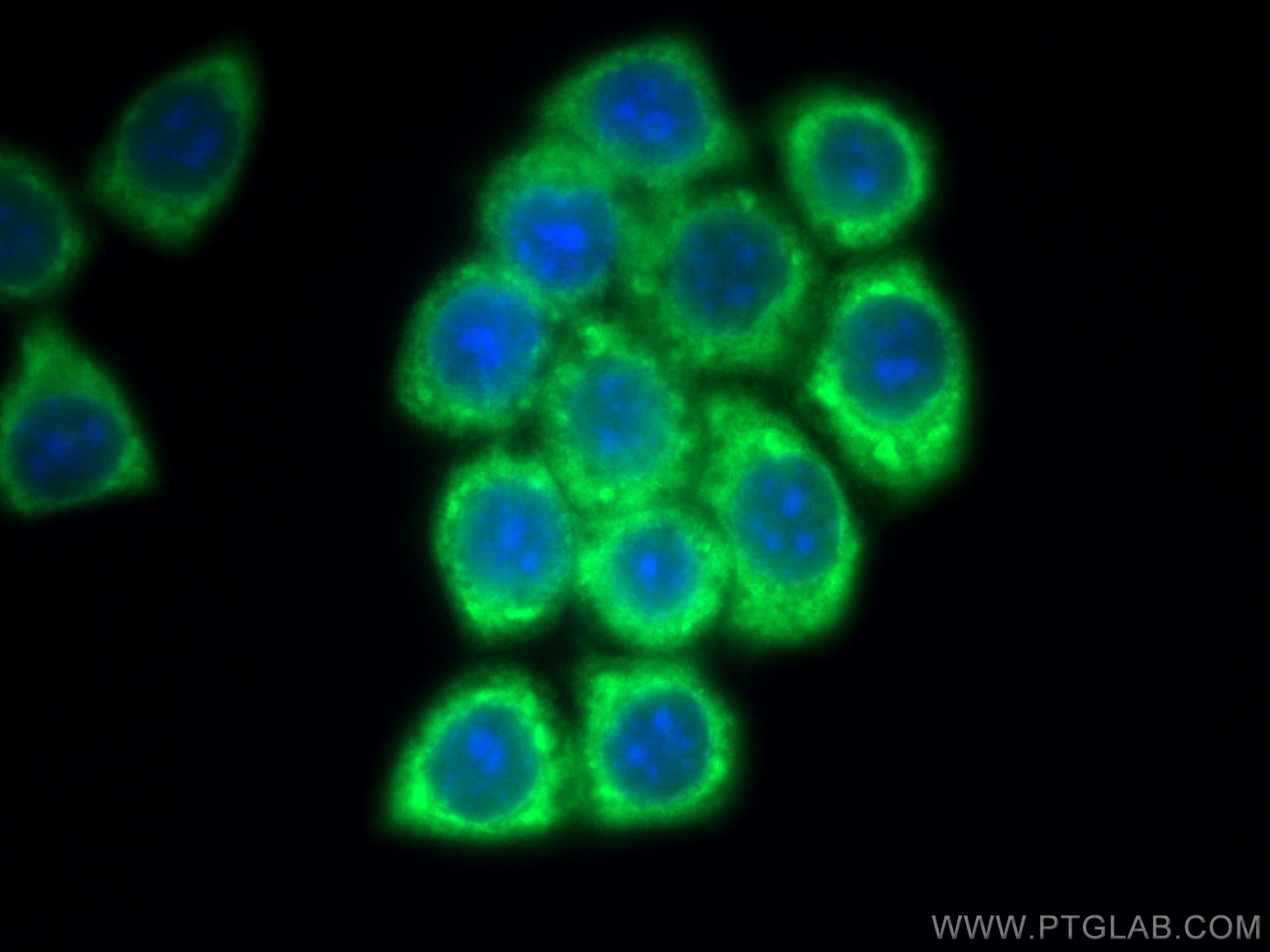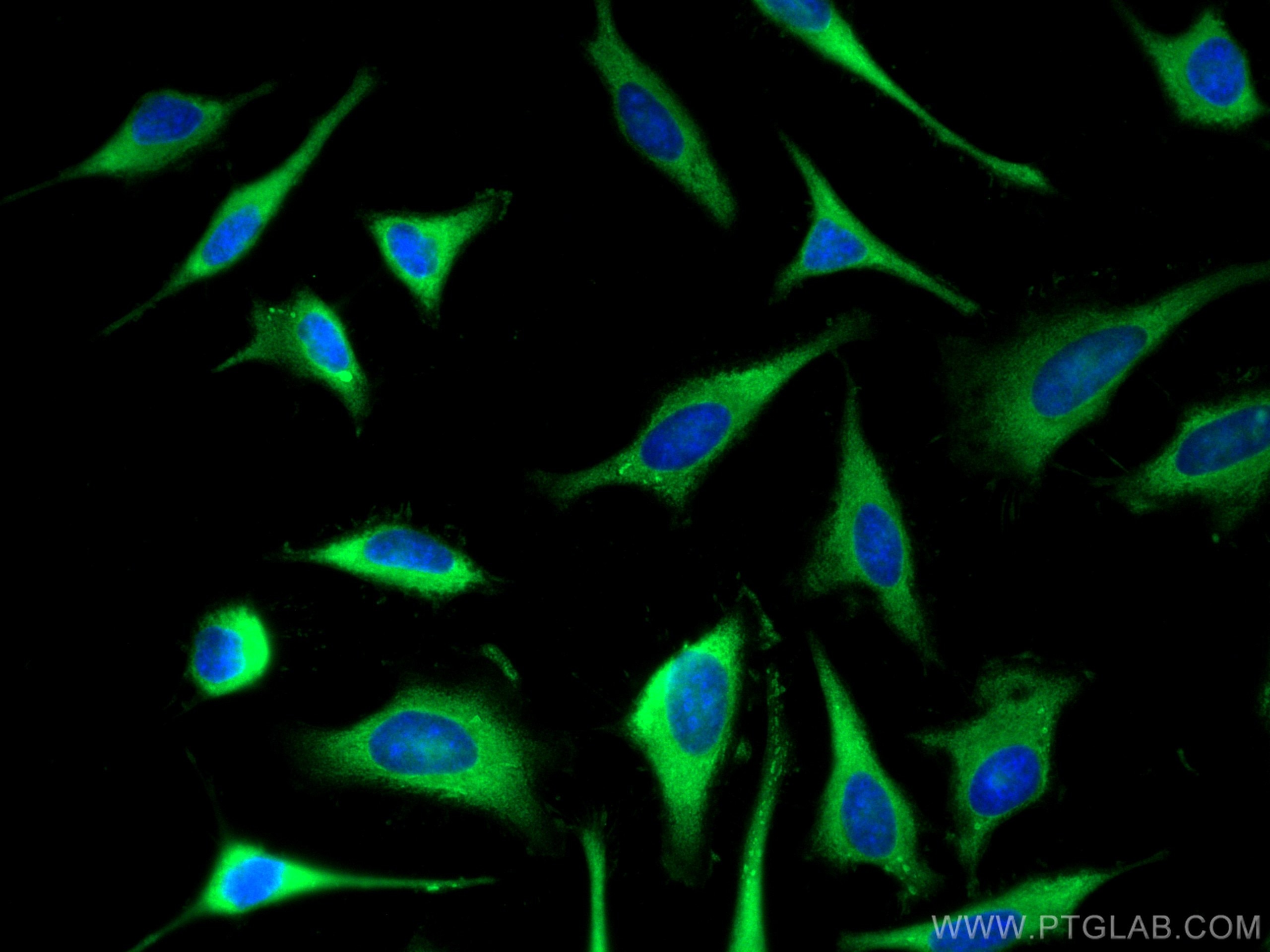- Phare
- Validé par KD/KO
Anticorps Polyclonal de lapin anti-PFKP
PFKP Polyclonal Antibody for WB, IP, IF, IHC, ELISA
Hôte / Isotype
Lapin / IgG
Réactivité testée
Humain, rat, souris
Applications
WB, IHC, IF/ICC, IP, ELISA
Conjugaison
Non conjugué
N° de cat : 13389-1-AP
Synonymes
Galerie de données de validation
Applications testées
| Résultats positifs en WB | cellules HEK-293, cellules BxPC-3, cellules HeLa, cellules Jurkat, cellules MCF-7, cellules NIH/3T3, cellules Raji, tissu cardiaque de rat, tissu cardiaque de souris, tissu cardiaque humain, tissu de muscle squelettique de rat, tissu de muscle squelettique de souris |
| Résultats positifs en IP | cellules Jurkat, tissu cardiaque de souris |
| Résultats positifs en IHC | tissu cardiaque de souris, tissu cardiaque humain, tissu de cancer du poumon humain, tissu splénique humain il est suggéré de démasquer l'antigène avec un tampon de TE buffer pH 9.0; (*) À défaut, 'le démasquage de l'antigène peut être 'effectué avec un tampon citrate pH 6,0. |
| Résultats positifs en IF/ICC | cellules HeLa, cellules BxPC-3 |
Dilution recommandée
| Application | Dilution |
|---|---|
| Western Blot (WB) | WB : 1:2000-1:16000 |
| Immunoprécipitation (IP) | IP : 0.5-4.0 ug for 1.0-3.0 mg of total protein lysate |
| Immunohistochimie (IHC) | IHC : 1:50-1:500 |
| Immunofluorescence (IF)/ICC | IF/ICC : 1:50-1:500 |
| It is recommended that this reagent should be titrated in each testing system to obtain optimal results. | |
| Sample-dependent, check data in validation data gallery | |
Applications publiées
| KD/KO | See 1 publications below |
| WB | See 22 publications below |
| IHC | See 4 publications below |
| IF | See 2 publications below |
| IP | See 1 publications below |
Informations sur le produit
13389-1-AP cible PFKP dans les applications de WB, IHC, IF/ICC, IP, ELISA et montre une réactivité avec des échantillons Humain, rat, souris
| Réactivité | Humain, rat, souris |
| Réactivité citée | rat, Humain, souris |
| Hôte / Isotype | Lapin / IgG |
| Clonalité | Polyclonal |
| Type | Anticorps |
| Immunogène | PFKP Protéine recombinante Ag4047 |
| Nom complet | phosphofructokinase, platelet |
| Masse moléculaire calculée | 784 aa, 86 kDa |
| Poids moléculaire observé | 80-86 kDa |
| Numéro d’acquisition GenBank | BC029138 |
| Symbole du gène | PFKP |
| Identification du gène (NCBI) | 5214 |
| Conjugaison | Non conjugué |
| Forme | Liquide |
| Méthode de purification | Purification par affinité contre l'antigène |
| Tampon de stockage | PBS avec azoture de sodium à 0,02 % et glycérol à 50 % pH 7,3 |
| Conditions de stockage | Stocker à -20°C. Stable pendant un an après l'expédition. L'aliquotage n'est pas nécessaire pour le stockage à -20oC Les 20ul contiennent 0,1% de BSA. |
Informations générales
PFKP(6-phosphofructokinase, platelet type) is also named as PFKF, PFK-C and belongs to the phosphofructokinase family. This form of PFK is best called the 'platelet' type and symbolized PFKP because it is the only form made by platelets, whereas fibroblasts have more than one form of PFK (Francke (1983)). PFK catalyzes the irreversible conversion of fructose-6-phosphate to fructose-1,6-bisphosphate and is a key regulatory enzyme in glycolysis. The observed molecular weight of PFKP monomer is 80-86 kDa. The molecular mass of PFKP dimer is 171 kDa (PMID: 28607489).
Protocole
| Product Specific Protocols | |
|---|---|
| WB protocol for PFKP antibody 13389-1-AP | Download protocol |
| IHC protocol for PFKP antibody 13389-1-AP | Download protocol |
| IF protocol for PFKP antibody 13389-1-AP | Download protocol |
| IP protocol for PFKP antibody 13389-1-AP | Download protocol |
| Standard Protocols | |
|---|---|
| Click here to view our Standard Protocols |
Publications
| Species | Application | Title |
|---|---|---|
Cell Res Mannose antagonizes GSDME-mediated pyroptosis through AMPK activated by metabolite GlcNAc-6P | ||
Cell Metab Augmentation of scleral glycolysis promotes myopia through histone lactylation | ||
Mol Cell R-2-hydroxyglutarate attenuates aerobic glycolysis in leukemia by targeting the FTO/m6A/PFKP/LDHB axis.
| ||
Stem Cell Reports The Long Noncoding RNA Lncenc1 Maintains Naive States of Mouse ESCs by Promoting the Glycolysis Pathway. | ||
Acta Pharmacol Sin Bmal1 inhibits phenotypic transformation of hepatic stellate cells in liver fibrosis via IDH1/α-KG-mediated glycolysis. |
